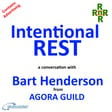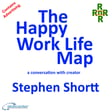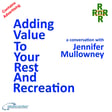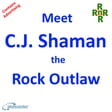
Balancing, Work, Family, and Military Service – a conversation with Noam Markose
For many people outside the Middle East the Israel Defence Force (IDF) is just the name of Israel’s army, that they hear on the TV News. But the IDF is a very different army to those of other western countries. Whilst other armies have permanent troops, Israel has an army that is staffed by people like Noam Markose. As well as being an officer in the IDF, Noam is also a company director and a father of four.
Most people talk about having a work life balance, but IDF members must balance work and life and military service.
In this episode of the Abeceder work life balance podcast Rest and Recreation Noam explains to host Michael Millward the IDF recruitment process, and what drives most Israelis to actively participate, despite the disruption to, families, careers, and the obvious dangers.
Noam explains what happened after the October 2023 attack on Israel, how hundreds of thousands of reservists were immediately called up; how he managed being in a military environment just a short drive from his family home; the impact on his young family and how he managed returning to civilian work.
The Independent Minds is Made on Zencastr, because creating on Zencastr is so easy.
If you would like to try podcasting using Zencastr use our offer code ABECEDER.
Thank you to the team at Matchmaker.fm for introducing me to Noam. Matchmaker.fm is where matches of great hosts and great guests are made. Use code MILW10 for a discount on membership.
Travel
Noam is based in Jerusalem in Israel. Members of The Ultimate Travel Club travel Israel and everywhere else at trade prices. Use our offer code ABEC79 to receive a discount on club membership.
Visit Abecederfor more information about Michael Millward, and Noam Markose.
Proactive Positive Ageing.
It is always a good idea to know the risks early so that you can take appropriate actions to maintain good health, that is why we recommend The Annual Health Test from York Test.
York Test provides an Annual Health Test. An experienced phlebotomist will complete a full blood draw at your home or workplace. Hospital standard tests covering 39 different health markers are carried out in a UKAS-accredited and CQC-compliant laboratory.
A Personal Wellness Hub gives access your easy-to-understand results and guidance to help you make effective lifestyle changes anytime via your secure, personal Wellness Hub account.
Visit York Test and use this discount code ABECEDER2.
Being a Guest
If you would like to be a guest on Rest and Recreation, please contact Abeceder.
We recommend that potential guests take one of the podcasting guest training programmes available from Work Place Learning Centre.
If you have liked this episode of Rest and Recreation, please give it a like and download it. To make sure you do not miss future editions please subscribe.
Remember, the aim of all the podcasts produced by Abeceder is not to tell you what to think, but we do hope to make you think!
Thank you to you for listening.



















